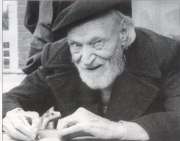Pagina: 8 : 7 : 6 : 5 : 4 : 3 : 2 : 1
Vis II
: Vol. „O viață de om” – Integrală poetică
Poezie 2020-07-15 (6458 afişări)
12 septembrie 1966
: Vol. „O viață de om” – Integrală poetică
Poezie 2020-05-16 (6944 afişări)
1932
: „ Viața unui om” – Paralela 45, 2009
Poezie 2020-08-07 (6192 afişări)
A dormi
: Vol. „O viață de om” – Integrală poetică
Poezie 2020-06-02 (6886 afişări)
A fost odată
: Vol. „O viață de om” – Integrală poetică
Poezie 2020-06-03 (6646 afişări)
A fost odată*
: Vol. „Viața unui om” – Paralela 45
Poezie 2020-08-13 (5644 afişări)
Acord amar
: Vol. „O viață de om” – Integrală poetică
Poezie 2020-05-14 (7023 afişări)
Acord amar*
: Vol. „Viața unui om” – Paralela 45
Poezie 2020-08-14 (5830 afişări)
Acuma vântul
: din volumul: „ Viața unui om” – Paralela 45, 2009
Poezie 2020-08-01 (5760 afişări)
Agonia
:
 Poezie 2005-08-31 (20076 afişări) Poezie 2005-08-31 (20076 afişări)
Agonie
: Traducere de Iulian Filip
Poezie 2009-05-14 (12649 afişări)
Ai văzut stingându-se
: vol. - „O viață de om” – Integrală poetică
Poezie 2020-06-14 (6296 afişări)
Al cincilea cânt
: Vol. „O viață de om” – Integrală poetică
Poezie 2020-06-29 (6142 afişări)
Al doilea cânt
: Vol. „O viață de om” – Integrală poetică
Poezie 2020-06-04 (6491 afişări)
Al patrulea cânt
: Vol. „O viață de om” – Integrală poetică
Poezie 2020-06-27 (6150 afişări)
Al șaselea cânt
: Vol. „O viață de om” – Integrală poetică
Poezie 2020-07-04 (6051 afişări)
Al treilea cânt
: Vol. „O viață de om” – Integrală poetică
Poezie 2020-06-28 (6253 afişări)
Am pierdut tot
: Vol. „O viață de om” – Integrală poetică
Poezie 2020-08-15 (5802 afişări)
Pagina: 8 : 7 : 6 : 5 : 4 : 3 : 2 : 1 |
|

|
|
|
|
Biografie Giuseppe Ungaretti
Giuseppe UNGARETTI (1888-1970) s-a născut în Africa, la Alexandria. A trăit acolo până la 23 de ani; în 1912, a plecat nu spre Italia (țara părinților săi toscani, atrași în Egipt de construcția canalului de Suez), ci spre Paris, pentru studii la Sorbona. Tânărul Ungaretti își regăsește originile peninsulare abia în 1915, când se înrolează voluntar în armata italiană, intrată în primul război mondial! Nu va părăsi frontul, pe fluviul Isonzo și în alte locuri, decât în 1918 - pentru a se transfera cu regimentul său în Franța.
Al treilea continent din viața autorului (devenit, după războiul "re-înțărării" sale, un distins universitar și, firește, un poet a cărui creație schimba, alături de două-trei altele, fața liricii post-dannunziene!) este America Latină. După un popas în Argentina, el va fi profesor de italiană la Universitatea din Sao Paulo, în Brazilia, între 1936 și 1942.
***
Giuseppe Ungaretti (February 8, 1888–June 2, 1970) was an Italian modernist poet, journalist, essayist, critic and academic. A leading representative of the experimental trend known as ermetismo, he was one of the most prominent contributors to 20th century Italian literature. Influenced by symbolism, he was briefly aligned with futurism. Like many futurists, he took an irredentist position during World War I. Ungaretti debuted as a poet while fighting in the trenches, publishing one of his best-known pieces, L'allegria ("The Joy").
During the interwar period, Ungaretti was a collaborator of Benito Mussolini (whom he met during his socialist accession), as well as a foreign-based correspondent for Il Popolo d'Italia and La Gazzetta del Popolo. While briefly associated with the Dadaists, he developed ermetismo as a personal take on poetry. After spending several years in Brazil, he returned home during World War II, and was assigned a teaching post at the University of Rome, where he spent the final decades of his life and career. His fascist past was the subject of controversy.
L'Allegria is a decisive moment of the recent history of Italian literature: Ungaretti revises with novel ideas the poetic style of the poets maudits (especially the broken verses without punctation marks of Guillaume Apollinaire’s Calligrammes), connecting it with his experience of death and pain as a soldier at war. The hope of brotherhood between all the people is expressed strongly, together with the desire of searching for a renovated "harmony" with the universe, impressive on the famous verses of Mattina:
M’illumino
d’immenso
(I flood myself
with light of the immense)
(Santa Maria La Longa, il 26 gennaio 1917)[20]
In the successive works he studied the importance of the poetic word, as the only way to save the humanity from the universal horror, and was searching for a new way to recuperate the roots of the Italian classical poetry. His last verses are on the poem l'Impietrito e il Velluto, about the memory of the bright universe eyed Dunja, an old woman that was house guest of his mother in the time of his childhood. Here's the end:
Il velluto dello sguardo di Dunja
Fulmineo torna presente pietà
(The velvet in the bright gaze of Dunja
Rapid returns as present mercy)
Published volumes
Il porto sepolto ("The Buried Port", 1916 and 1923)
La guerre ("The War", 1919 and 1947)
Allegria di naufragi ("The Joy of Shipwrecks", 1919)
L'allegria ("The Joy", 1931)
Sentimento del tempo ("The Feeling of Time", 1933)
Traduzioni ("Translations", 1936)
Poesie disperse ("Scattered Poems", 1945)
Il dolore ("The Pain", 1947)
La terra promessa ("The Promised Land", 1950)
Un grido e paesaggi ("A Shout and Landscapes", 1952)
Il taccuino del vecchio ("The Old Man's Notebook", 1960)
Vita di un uomo ("The Life of a Man", 1969)
|





